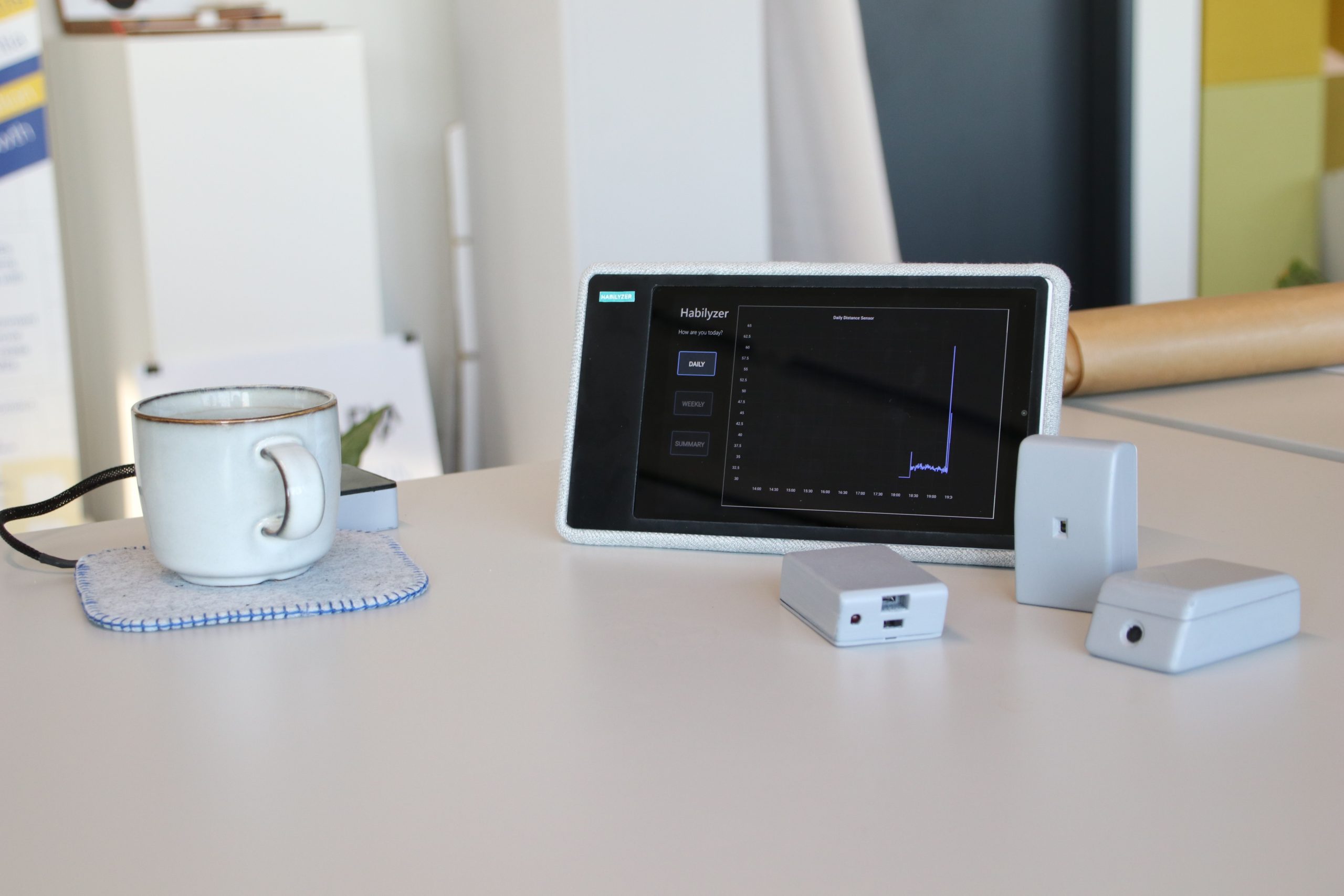Habilyzer is a data collection probe that utilizes a set of 4 types of sensors and a base display showing data visualizations. It offers office employees a way to become explorers of their own habits. Habilyzer builds on the idea that people themselves can be enticed to investigate their own behaviors if given the right tools. It implements a data-enabled design process combining quantified sensor data and qualitative nuance, offering both users and researchers rich insights into their everyday life. Through longitudinal deployments of the probe kit in multiple settings (individual, social, managed) we create valuable knowledge to help design the next generation of health-promoting office concepts.

Design Process
I use a data-enabled design process, where data is used as a creative material to grasp the human experience of the everyday. It leverages sensor-enriched environments to find patterns of behavior and connect the findings to qualitative approaches such as interviews and co-creation sessions. This paints a rich picture of how people use products, systems and services, allowing data-enabled designs that better fit human experiences and habits.
Technical Overview

Design Activities
- Sensor Development
- ESP32-based embedded software, including power management, local storage, MQTT-integration
- CAD modeling and 3D printing
- Embroidery, casing-finishes
- Base unit Development
- Raspberry Pi running Linux Server as main controller
- 4G mifi router acting as local network with ngrok-based ssh remote access
- Mosquitto MQTT implementation into Node-RED for data preprocessing
- InfluxDB database moving data to an Grafana instance that visualizes data in dashboards
- React-based app embedding and controlling Grafana-iframes
- User Testing
- Arrange companies and locations to host longitudinal user tests
- Provide onboarding experiences and documentation
- Consent Forms, Ethical Reviews, Data Security Provisions
- Execute experiments, monitor progress and evaluate afterwards
- Academic Literature and Benchmarking
- Synthesis of academic literature (HCI scope)
- Benchmarking of existing products and systems, evaluate pro’s and con’s
- Project Management
- Academic and non-Academic (commercially oriented) presentations
- Communication and Collaboration with stakeholders and end-users
- Planning and Timelines, Scrum-style development process.

